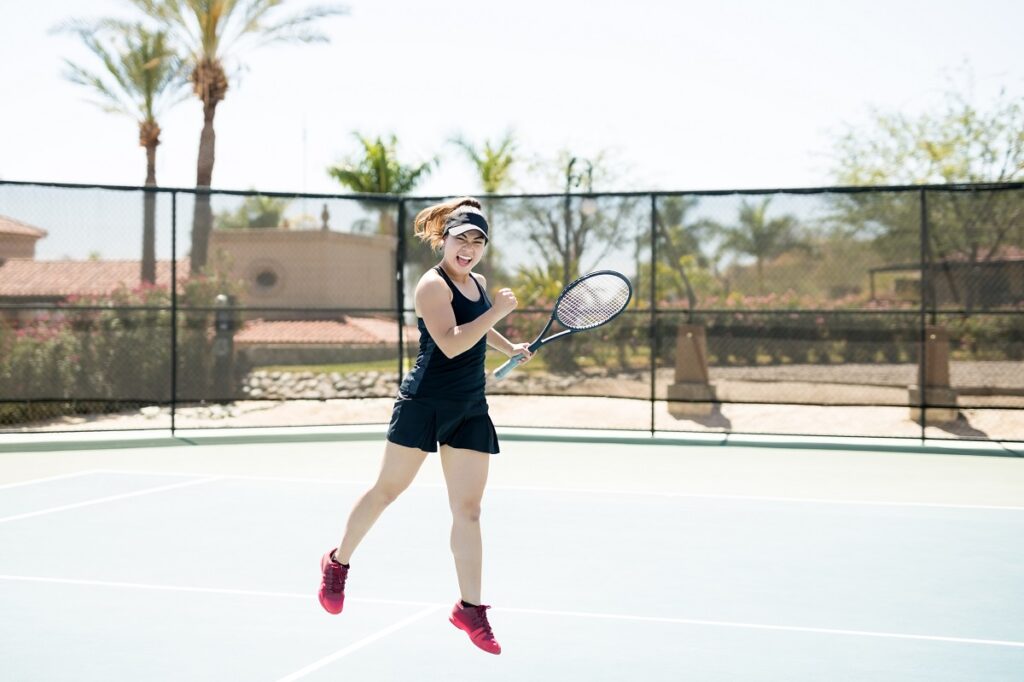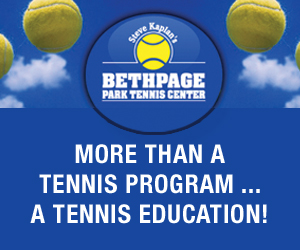The Triangle of Success in Tennis

There are tennis powerhouses in the world, nations that produce more top 100 players than other countries. There are certain regions in some countries that produce better players than other regions of that same nation. There are complex reasons for that, such as weather, socio-economic differences, sports and tennis culture of the region and so forth. But regardless of what country and region you live in, what does it take to create the smallest single unit to achieve success in tennis? It is the triangle of the parents, who have a long-term vision for their child, the coach who has a long-term plan for the player and a good athlete motivated to improve their craft. In this article, I will focus on this triangle, with an emphasis on a long-term perspective and junior development plan based on the merits of the player.
How do you develop a long-term perspective and plan?
Tennis is an individual sport. When we look at top 100 pro level players, whether the men’s or women’s circuit, we see a very different style of players, some even with unorthodox shots and game styles. What we also see is that they exclusively specialize on a style that maximizes their strengths and minimizes their weaknesses. This is the starting point and most important aspect of long-term planning. Starting when the child is 12- or 13-years-old, a coach must project what kind of style will give that player the best chance of a winning game at the pro level, based on their shots, athletic ability and mentality. This projection is an ongoing process and needs to be updated depending on whether or not the junior player’s abilities change. It becomes less flexible when the player approaches the pro level.
After having a projection, then the long-term plan comes into play of how to build that game style. Here, the most important thing is knowing your player really well. What assets and liabilities your player has athletically, technically and mentally. Knowing your player well takes some time. It takes spending a lot of time on the practice court and seeing a lot of matches.
One of the most important decisions for success is that the parents have to stay long-term with a coach whom they think has a long-term vision and a good executioner of this plan and vision, day-in, day-out. Just think about parents who change coaches often, or send their kids from academy to academy in thinking every coach who works with their child will teach them something new. This is one of the biggest misconceptions of coaching and is a recipe for failure. Change in tennis, like anything else in life, is a process. There is no short cut. That’s the repetition of whatever you are working on until it becomes second nature. Basically what you are trying to do is trying to fill a pool with a one drop of rain every single day with a well-executed practice based on your plan. So whatever your setting is, whether your child is working with a club, in an academy, or with a private coach, the question is “What’s the plan for my child’s development?”
The X-Factor: Parents
In this triangle, parents have a big influence and it must be a positive influence. If a coach spends three to four hours a day with a player, parents spend much more time than this with their child. As much as their decisions dictate their child’s development, what and how they talk with their kids has a very big impact on their development. One of the most important things to emphasize to a child is that effort and performance has greater importance than winning. Winning always feels good, gives you confidence and motivation, but what must never be lost sight of is that the goal is to build a distinctive product geared for a higher level. Everybody has to be on the same page with this. Effort is going to make the biggest difference in years of practice and match play.
So the plan comes from the coach, effort and hard work from the player, and support from the parents. Another crucial thing is to understand that the child always feels the pressure and stress on their own and it is a mistake to create more external pressure. The right thing to do is to help the child manage pressure rather than overwhelming the player with it. Another mistake for parents is to make the child feel like they are playing tennis for the parents. A tennis career is a long one, so to endure it, the child must be the one who wants it more than the parents and the coach. That gives the child a feeling of freedom. Otherwise, it becomes a chore for the child to satisfy the parents, and at some point, the player is overwhelmed.
Trust and communication
Trust must be the foundation of this triangle. The question is simple: Do you trust your coach to take your child to the next level? I don’t see any grey area on this question. In order to attain success, the player and the parents must have full confidence in the coach. If there is some doubt, it always grows. It is also very important for the coach to believe in the player as well. To build trust between the parents and the coach, communication is crucial. The coach should let the parents know about their long-term, mid-term and short-term plans and goals and keep them updated weekly how the process is going. This also helps the parents to be on the same page with the coach, while communicating with their child.
According to research done by tennis coach Piotr Unierzyski, among 1,000 (12- to 13-years-old) players from 1994 to 2002 in 50 different countries, the ones who made it into top 100 professional rankings, their parents were supportive, but not over-involved.
The coach should stay away from giving the parents unrealistic expectations for the long-term health of this relationship. Parents should follow the process, but they should not interfere and should not overanalyze.







